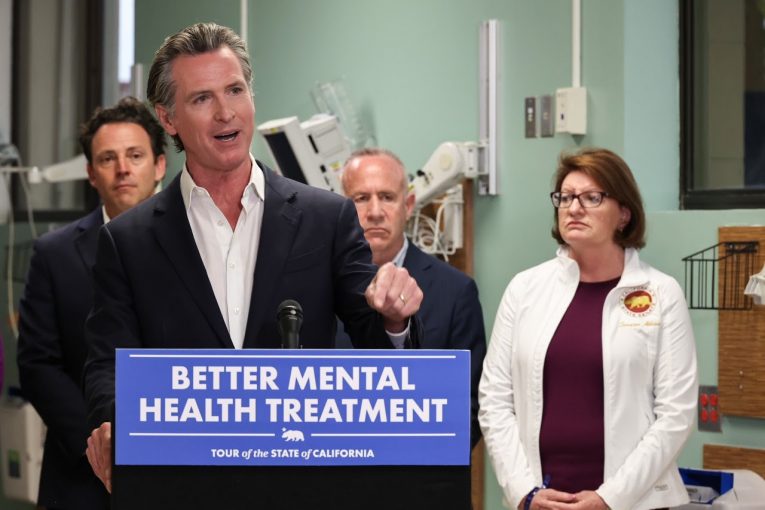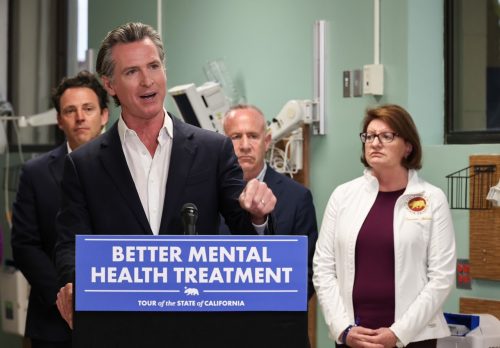

By Avery Redula
SACRAMENTO, CA – This week, California Gov. Gavin Newsom announced his signing of Senate Bill 43 (SB 43), which expands the definition of what qualifies for conservatorship to better cater to California’s mental health system and to protect a wider range of individuals going through times of crises.
Conservatorship is last resort governmental assistance in cases of extreme mental health crises to connect individuals with medical support and external resources, the measure states, adding under conservatorship, a family member or separate guardian would be in charge of this individual’s care: from personal and medical care to finances.
Newsom’s signing notice said, “Conservatorship can help break the cycle of repeated crises including arrest and imprisonment, psychiatric hospitalization, homelessness, and even premature death – and instead provide the care that can restore mental health and end the conservatorship.”
Adding California’s conservatorship laws had not been majorly updated since 1967, the governor sees the measure as a huge step for addressing the state’s need for mental health care.
Newsom’s message said conservatorship before SB 43 was granted in the state of California to those who are “gravely disabled,” or those who cannot provide their own shelter, food, and clothing because of severe mental illness.
However, with the signing of SB 43, the definition of “gravely disabled” in addition to the 1967 definition includes individuals who cannot care for their own safety or medical needs due to either severe substance use disorder or serious mental health illnesses.
“In addition, Senate Bill 43 encompasses people with a severe substance use disorder, such as chronic alcoholism, and no longer requires a co-occurring mental health disorder. The new law will update the situations when this intervention can be considered and create the first-ever meaningful transparency into data and equity on mental health conservatorships,” added Newsom’s office.
Senate Bill 43 was authored by Sen. Susan Eggman (D-Modesto), who said she understands the need for mental health empowerment and assistance as a previous social worker.
Eggman explains, “The Act established strong and important civil liberty protections to ensure individual rights are protected. Like many things that are decades old, it has long been time to make some adjustments to the law to address the realities we are seeing today on our streets. SB 43 maintains the strong due process protections provided in the LPS Act, while expanding the criteria for making a ‘gravely disabled’ determination, so that the most severely ill can get the help they need and the dignity they deserve.”
Eggman and Newsom have the support of many California elected officials and medical professionals.
London Breed, Mayor of San Francisco, said, “Senate Bill 43 will enable us to provide life-saving behavioral health support to those who are struggling in our city and on our streets. I am grateful to Senator Eggman for her tenacious leadership on this legislation and Governor Newsom for working to ensure that people all over California receive the treatment they need to stabilize, heal and get their lives on track.”
Dr. Jessica Thackaberry, chairwoman of the California State Association of Psychiatrists, added, “SB 43 contains several changes to law to ensure that individuals who are truly the most gravely disabled Californians obtain the services they need. The California State Association of Psychiatrists and its thousands of members are grateful (to Eggman and Newsom) for understanding that state law needs to be updated so that it reflects the unfortunate realities of what behavioral health professionals see manifesting every day in our communities.”
Senate Bill 43 is part of the larger effort of the governor’s plan, he said, to modernize California’s resources for mental health, and stopping cycles of substance abuse, jail time, and mental health hospitalizations for those going through crises.
“California is undertaking a major overhaul of our mental health system. The mental health crisis affects us all, and people who need the most help have been too often overlooked. We are working to ensure no one falls through the cracks, and that people get the help they need and the respect they deserve,” said Newsom.




